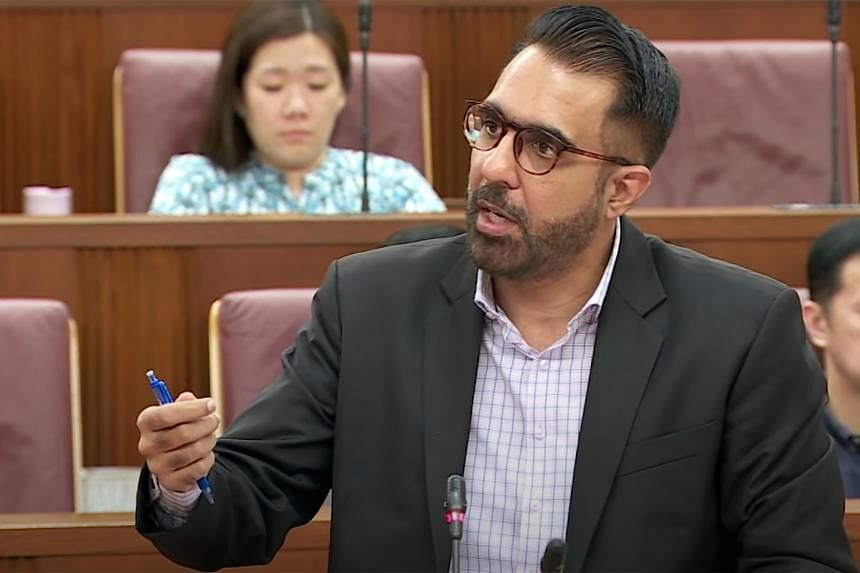- Joined
- Jul 25, 2008
- Messages
- 13,777
- Points
- 113
Pritam says Government has not adequately acknowledged people’s anxieties on housing

Leader of the Opposition and WP chief Pritam Singh proposed an amendment to a motion on public housing on Tuesday. PHOTO: GOV.SG

Tham Yuen-C
Senior Political Correspondent
Feb 8, 2023
SINGAPORE – Leader of the Opposition and Workers’ Party (WP) chief Pritam Singh on Tuesday suggested that the ruling party had not adequately acknowledged people’s anxieties about the affordability and accessibility of HDB flats, as he proposed an amendment to a motion on public housing.
Speaking as the House debated two motions on the subject – one by National Development Minister Desmond Lee and the other by Progress Singapore Party (PSP) Non-Constituency MPs Leong Mun Wai and Hazel Poa – Mr Singh asked if “the current anxieties of Singaporeans do not warrant greater effort by the PAP government to review its commitment to affordability and accessibility”.
The House debated both motions for some 12 hours over Monday and Tuesday.
Mr Lee called on the House to say that it “affirms the importance of keeping public housing affordable and accessible while protecting the interests of current and future generations of Singaporeans, and endorses the commitment of the Government to these twin goals”.
Meanwhile, Mr Leong and Ms Poa called on the Government to review and fix its housing policies.
But Mr Singh said the People’s Action Party (PAP) motion as drafted did not sufficiently take into account the reality that the Government should work harder to make Housing Board flats and Build-To-Order (BTO) flats more affordable and more accessible than they currently are.
“Voting for the PAP motion, as drafted... would mean that Singaporeans are satisfied with waiting up to four to five years for an HDB BTO flat. It will also mean that Singaporeans do not have any quarrel or concern with the price of some BTO flats such as five-room BTOs in Ang Mo Kio priced at $877,000, and a significant increase in resale flat prices across the board recently,” he said.
“It will also mean that young couples and first-time Singaporean families who cannot secure HDB BTO flats in a timely fashion and are pushed to the resale market where resale prices are higher than they have ever been, are not seeking better outcomes from public housing policies. We know from our engagement with Singaporeans that this is not the case,” he added.
Mr Singh proposed a change to the motion.
He called on the House to say it “affirms the importance of keeping public housing affordable and accessible while protecting the interests of current and future generations of Singaporeans and calls on the Government to intensify its efforts to meet these twin goals”.
In response, Mr Lee said that the Government was in no way suggesting that its housing policy is perfect.
It has, in fact, acknowledged that things can be improved, and has been continuously working to make things better, the minister added.
“By no way are we saying all is well and good,” Mr Lee said. “(But) for the Leader of the Opposition to characterise our motion as us sitting on our laurels... I think is misplaced.”
He urged MPs to “vote down WP’s attempt at politicking”.
The House eventually rejected the changes.
During the debate, the PSP NCMPs proposed an Affordable Homes Scheme, which came under criticism from both ministers and ruling party backbenchers as well as Nominated MPs, with many who spoke saying the proposal would erode the country’s reserves.
The scheme involves allowing people to buy new flats sans the cost of land upfront, but recouping the land cost recorded at the point of sale, along with some accrued interest, only when people sell the flats.
Mr Singh said such calls to look at how land costs can be accounted for in different ways have been made by many others over the years including the mainstream media, and not just the PSP, and should not be met with accusations of raiding the reserves.
He noted that under the Government Land Sales programme, land for industrial use is sometimes sold slightly below market valuation, and asked if this would constitute a draw on the reserves.
He added that there was scope to take a “different, more enlightened view about land costs” to make public housing more affordable, and asked the Government to be more transparent about how cost of land factors into HDB prices.
Mr Singh also questioned if the Government’s practice of giving subsidies to make flats more affordable could impact fairness and equity, since such subsidies are not the same across BTO developments.
He said the HDB should be able to disclose the subsidies for each project, given that the Government has provided these figures in the past.
He also said that if BTO flats in mature estates benefit from more subsidies, which are ultimately funded by the taxpayer, than those in non-mature estates, there would be an impact on equitability. This is especially so because flats in mature estates can later be sold for more profit, he argued.











